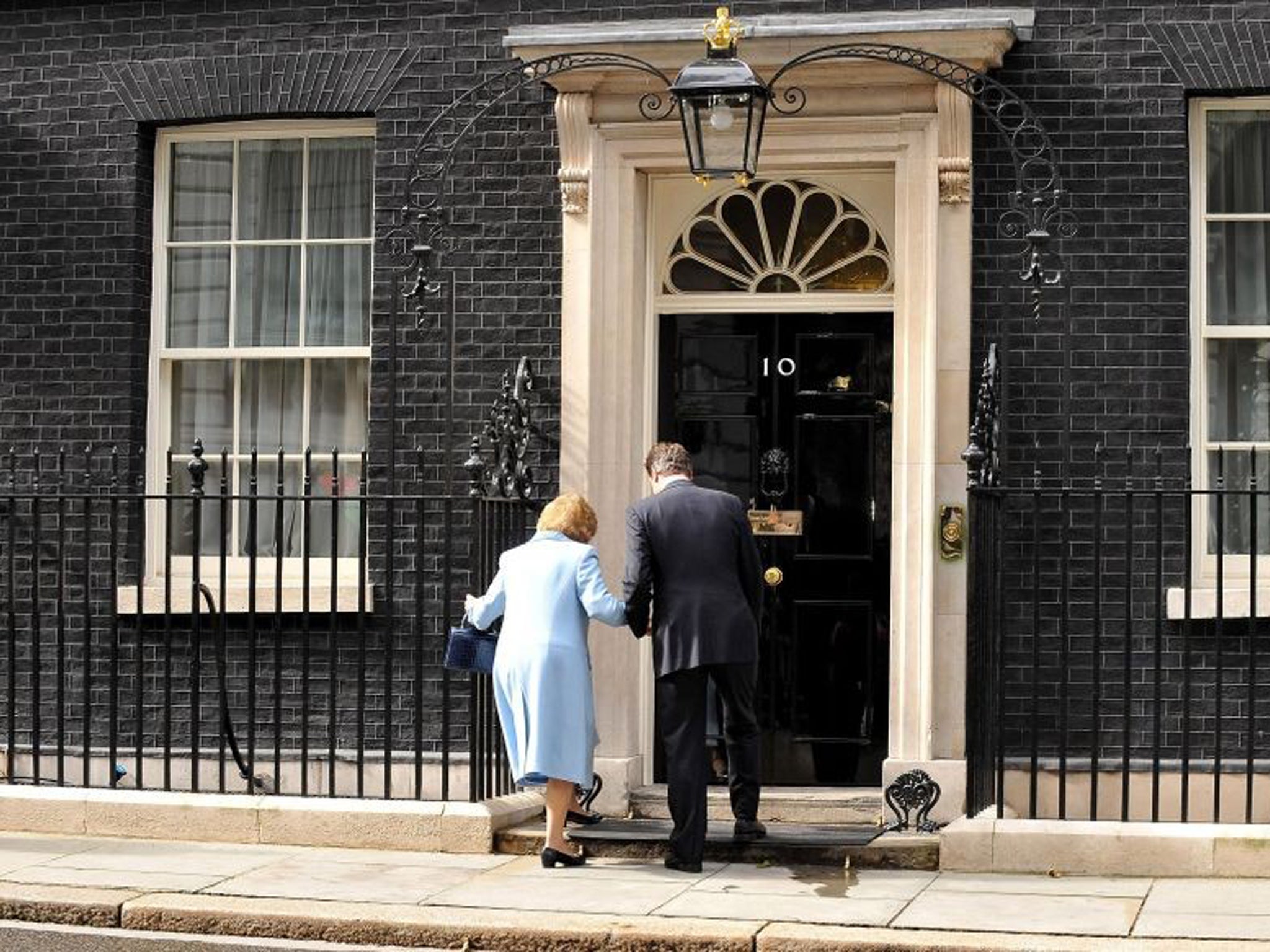Margaret Thatcher's ended her days quietly, but friends say she never lost her spark

Your support helps us to tell the story
From reproductive rights to climate change to Big Tech, The Independent is on the ground when the story is developing. Whether it's investigating the financials of Elon Musk's pro-Trump PAC or producing our latest documentary, 'The A Word', which shines a light on the American women fighting for reproductive rights, we know how important it is to parse out the facts from the messaging.
At such a critical moment in US history, we need reporters on the ground. Your donation allows us to keep sending journalists to speak to both sides of the story.
The Independent is trusted by Americans across the entire political spectrum. And unlike many other quality news outlets, we choose not to lock Americans out of our reporting and analysis with paywalls. We believe quality journalism should be available to everyone, paid for by those who can afford it.
Your support makes all the difference.The image that the greatest number of people have of Margaret Thatcher’s declining years is that powerful screen portrayal by Meryl Streep in the 2011 film, The Iron Lady.
The actress went out of her way to look like the Baroness, and to copy her mannerisms, and to play a woman still driven by a powerful will but losing contact with the present.
The film offended many of those close to the former Prime Minister, particularly because it made use of a rumour then current in Westminster that there were days when she thought that her beloved Denis, who died in 2003, was still alive.
“That was a load of rubbish,” one Tory who was in touch with her to the end said yesterday. “The film was brilliantly acted but the script was nonsensical. It’s lucky she never saw it.”
The harsh truth is that the once-sharp mind had days when it clouded over, and the capacious memory that served her in office deserted her. On the eve of her 85th birthday in October 2010, an old associate worried aloud about what would have to happen as she arrived at No 10, where there was to be a party in her honour. Her long-serving aide, Mark Worthington, would have to be at her side throughout, he said. “He’ll have to make sure that she knows where she is, that she knows who David Cameron is, and that she knows that he is a Conservative.”
In the event, Mr Worthington was spared that task, because she was too ill, and the birthday party went ahead without her. Poor health also kept her away from the wedding of Prince William and Kate Middleton.
Yet even as she deteriorated in body and mind, she still enjoyed her lunches with the little group who had kept in contact with her for 20 years. They included the MPs Conor Burns, Sir Gerald Howarth and Mark Pritchard, the former Scottish Secretary Lord Forsyth, her former Downing Street advisers Lord Powell and Sir Bernard Ingham, Ann Jenkin, Judy Ridley, and Alison Wakeham, wives of present or former Tory MPs, the former ITN executive Dame Sue Tinson, and Cynthia ‘Crawfie’ Crawford, who was in charge of her wardrobe at No 10.
Lady Thatcher also maintained an office at the House of Lords, where she was an occasional visitor, and an office staffed by the ever-loyal Worthington, who was her private secretary for 20 years. But in December 2011, as her health worsened, her Lords office was closed. Mr Worthington went from being a full-time employee to a consultant. This was done on well-meaning medical advice, though given her lifelong devotion to hard work it is open to debate whether making her less active did her any good.
“Access was being blocked on ground of her health,” one friend said yesterday. “It was taking me three months to arrange to see her, when it used to be done in days. I wonder whether this reduced access hastened her demise.”
Life was to play a cruel final blow when she had to abandon the house in Chester Square, in Belgravia, where she had lived since 1991. Four days before last Christmas she was whisked to hospital to have a growth removed from her bladder. Afterwards, she found the stairs in Chester Square too much, and moved to the Ritz hotel, where she spent her final three months as a recluse, shut away even from her diminished circle of old friends.
Sir Gerald Howarth, who last saw her on 4 December, when she lunched with him and Lord Forsyth in the House of Lords, said: “She was finding it difficult to move. Some people say that she had her moments, but the medication was taking a toll on her. She recognised people and understood what was going on, but it was a struggle for her to articulate.”
Mark Pritchard, who saw her just before the operation that forced her out of her home, said: “She was a little more fragile than usual but still very sharp in her analysis and thinking. She could still catch you off guard just when you thought she was not alert. She never lost her sparkle.”
Join our commenting forum
Join thought-provoking conversations, follow other Independent readers and see their replies
Comments